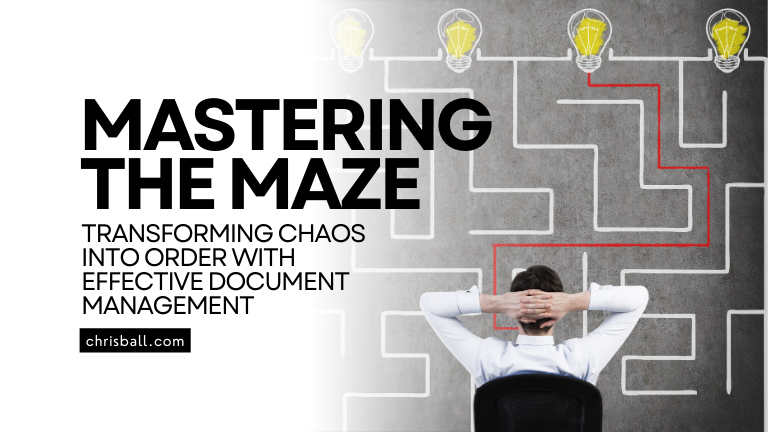At the beginning of my career, the challenge of managing projects and documents was as daunting as navigating a complex labyrinth in a strategy game. Initially, my approach was simple but flawed—a desk drawer that overflowed into a tray on my desk. This rudimentary system led to inefficiencies and frustrations, as I often wasted time searching for information or revisiting projects due to misplaced details.
The lack of a structured system for storing and managing information can create chaos, affecting not just your physical workspace but also your mental clarity. This disorganisation can manifest in various forms: a jumbled computer filing system, a cluttered desk brimming with papers, and an overall ineffective work environment. Just as a gamer struggles without a clear strategy, this disorganisation leads to difficulties in tracking progress and managing tasks efficiently.
I recall a meeting with a business manager whose office was the epitome of this chaos. His desk was buried under a mountain of files and papers. He claimed to have a system and knew the location of every item, but in reality, he spent over three hours searching for a critical letter that was misplaced among other files. This incident was a stark reminder that relying solely on memory in a disorganised system inevitably leads to lost or misplaced information.
For this manager, his chaotic system was a misguided attempt at making himself indispensable. He believed that by being the only one who could navigate his disorganised system, he was securing his position. However, this approach backfired, hindering his ability to delegate tasks and ultimately leading to a reduction in his responsibilities to aid the company’s growth.
Confronted with these challenges, I adopted a structured approach to organisation and delegation. I developed a system where each document and project had a specific place, both in the physical and digital realms.
The importance of effective teamwork also became clear, with each team member having a distinct role and can step in when needed. By ensuring others could easily understand and navigate my system, I not only enhanced efficiency but also fostered collaboration and team empowerment.
Transforming from a disorganised to a meticulously organised system was a pivotal moment in my journey towards effective project and document management. It taught me that success in business and work, much like in a strategic game, requires a well-planned system that supports personal efficiency and team collaboration. By embracing organisation and delegation, we can sidestep the pitfalls that ensnare many capable individuals and instead clear a path for greater success and growth.
